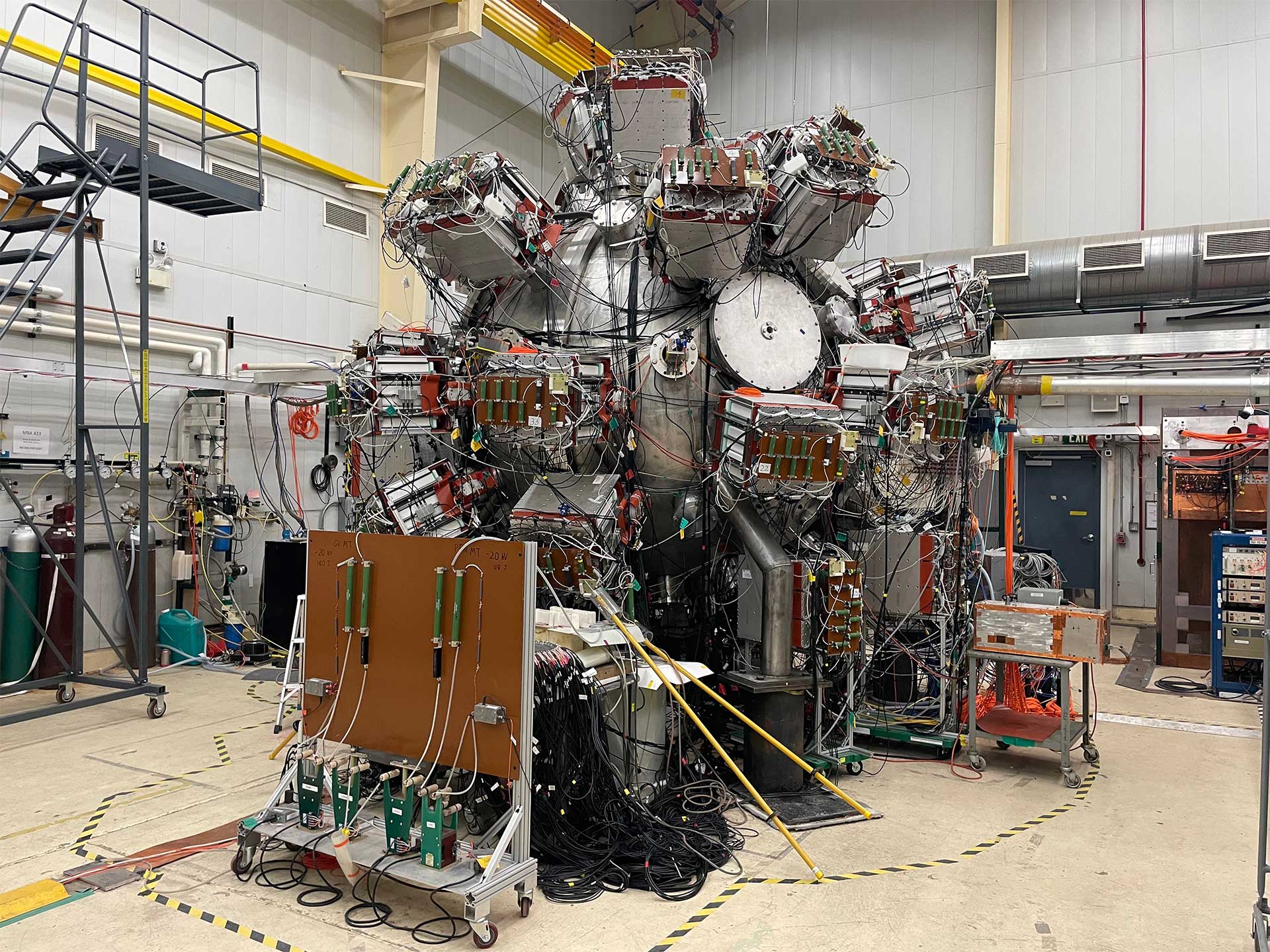Plasma Liner Experiment (PLX)
A Compact, Scalable Platform for Plasma-Jet-Driven Fusion and High- Density Energy Applications
technology Snapshot
Overview
Traditional approaches to fusion energy often require large-scale facilities, high-powered lasers, or expensive superconducting magnets. The Plasma Liner Experiment (PLX) offers a compact, cost-effective alternative. PLX forms imploding plasma liners from an array of synchronized, supersonic plasma jets. This approach enables the study of plasma-jet-driven magneto-inertial fusion (PJMIF), a hybrid method that combines benefits from both magnetic and inertial confinement.
Designed for scalability and frequent use, PLX provides a unique testbed for fusion energy, testing and validation in high-energy plasma environments, and high-density physics research.
PLX is designed to achieve fusion conditions while leveraging standoff designs to minimize hardware destruction and maintain reactor integrity. This scalable, low-cost platform uses synchronized plasma jets to compress fusion targets for clean energy and hypersonic testing applications.

Advantages
- Non-destructive and repeatable: PLX’s standoff jet configuration preserves reactor integrity, enabling multiple experiments without significant hardware wear.
- Affordable and scalable: Eliminates reliance on expensive high-power lasers or superconducting magnets, reducing both capital and operational costs.
- Flexible applications: Supports fusion energy R&D, hypersonic testing, and potential medical isotope production.
- Integrated design: Features built-in control and data acquisition (DAQ) systems to ensure precise timing, realtime
diagnostics, and seamless integration with external setups. - Sustainable operation: Facilitates easier management of generated energy and particles.
- Compact and adaptable: Offers a smaller footprint and simpler deployment for industry partners and research institutions.
Technology Description
PLX is an innovative platform technology for plasma-jet-driven fusion research and advanced aerospace applications.
Initiated in 2010 at Los Alamos National Laboratory, PLX creates imploding plasma liners from an array of precisely synchronized, supersonic plasma jets. This approach offers a hybrid method that blends magnetic and inertial confinement principles, distinguishing it from large-scale laser or magnetic fusion facilities.
Key Features Include:
- Hybrid fusion approach: Combines magnetic and inertial confinement principles to unlock new fusion
pathways. - High-velocity plasma jets: Each jet can be precisely controlled in speed and timing to optimize liner symmetry.
- Jet-based compression: Uses 36 synchronized plasma jets to form a liner, enabling uniform compression of fusion targets.
- Non-destructive operation: Separates the burn region from the jet apparatus to preserve system components.
- Modular jet array: Configurable and upgradeable to accommodate evolving test requirements and larger-scale compression studies.
Market Applications
Long-term:
- Fusion energy production: Develop a scalable and repeatable fusion platform to deliver clean, sustainable, and abundant energy to meet future demands.
Shorter-term:
- High-energy plasma testing and validation: Provide intense plasma environments for validating advanced materials and components used in high-heat, high-speed, or space environments.
- Spacecraft reentry and thermal protection: Simulate reentry conditions and test thermal protection systems for spacecraft and hypersonic vehicles.
- Grid energy storage and superconductors: Support development of advanced energy storage and superconductor systems through high-energy plasma exposure.
- Astrophysics and fusion R&D: Offer a testbed for studying plasma physics, astrophysical phenomena, and plasma-facing materials for next-generation fusion reactors.
Next Steps
Los Alamos National Laboratory is seeking commercialization partners, particularly companies and startups with expertise in plasma physics, aerospace systems, advanced manufacturing, or energy production, to advance the PLX platform and commercialize its unique capabilities. Ideal partners will bring the technical talent and financial resources necessary to scale PLX beyond laboratory development, ultimately creating a for-profit venture that leverages its nearterm applications in aerospace and hypersonic testing while paving the way for future fusion energy production.